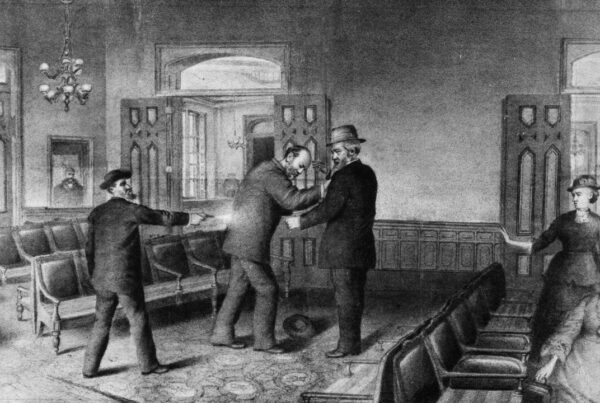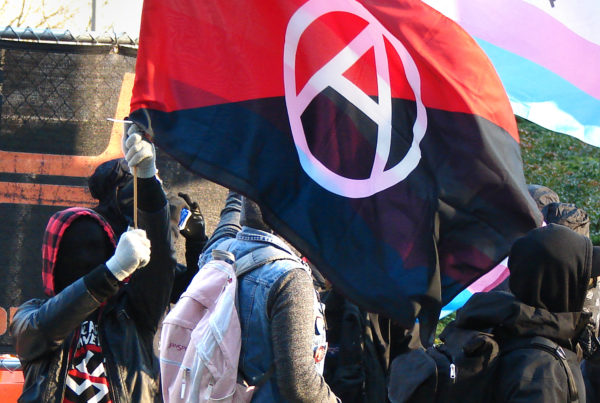Alternative Names:
Kurdistan Workers Party, Partya Karkeren Kurdistan, Kurdistan Labor Party, Kurdistan Freedom and Democracy Congress, KADEK, Kurdistan People’s Congress, Kurdistan Halk Kongresi (KHK), People’s Congress of Kurdistan, Kongra-Gel
Location:
Turkey, Iraq, Syria and Iran
Leadership:
Abdullah Ocalan is a Turkish Kurd who has led the Kurdistan Workers Party (PKK) since its founding in 1978. Ocalan, who was inspired by Marxist teaching as a university student in Ankara, believed that the Kurds deserved their own state. This lead to years of militant struggle against the Turkish government. In 1999 he was captured by Turkish Intelligence Services in the Greek embassy in Kenya. He was imprisoned and set for execution on the charge of treason, however the sentence has never been carried out nor has it been commuted. Despite this, Ocalan continues to inspire the PKK, giving orders from prison (including asking for a ceasefire in 2003) and seeking a political solution for the Kurds in Turkey.
Murat Karayilan was the functional head of the PKK since Ocalan’s capture in 1999. He remained in this position until 2014 when he became the leader of the PKK’s military wing the People’s Defence Forces.
Other key leaders include Nurrettin Halef al-Muhammad, Cemil Bayak, Duran Kalkan, Remzi Kartal, Sabri Ok and Adem Uzun.
Membership:
The exact number of fighters in the PKK is unknown, however, it is widely believed to be approximately 7000. The majority of their fighters are based in Northern Iraq.
Funding Sources:
The PKK draws considerable logistical support from sympathizers in the Kurdish communities in southeast Turkey, Syria and Iran. There are also large groups of Kurds outside the region, mostly in Germany, the Netherlands and Belgium who support the group financially and logistically.
Origins
In the late 1970s, Ocalan used his Marxist-Leninist roots from university to form the PKK. The group launched an armed struggle against the Turkish government in 1984, calling for an independent Kurdish state in Turkey. The campaign has resulted in guerilla warfare and terrorism.
Its activities include attacking the Turkish military, diplomats and Turkish businesses at home and in some western European cities. It has also been known to bomb resorts and kidnap tourists in an attempt to destabilize tourism in Turkey.
More than 40,000 people have died in the ongoing conflict which reached its peak in the mid-1990s. Thousands of villages were destroyed in the largely Kurdish southeast and east of Turkey. As a result, hundreds of thousands of Kurds fled to cities in other parts of the country.
Major Attacks (2012-2015):
There are too many incidents involving the PKK to list them all.
This list includes attacks from 2012-2015.
August 20, 2012: A car bomb attack on a police station in Gaziantep killed eight officers.
August 23, 2012: the PKK launched three attacks on military posts in the Semdinli district of Hakkari province, killing five military personnel and injuring four others.
September 18, 2012: Attacked a Turkish military convoy near Bingol with a rocket and firearms, killing 10 soldiers.
October 19, 2012: Bombed a gas pipeline near Eleskirt in Agri province, also hitting a military vehicle and injuring 28 soldiers. On the same day, PKK militants attacked a guard post in Ortakapi, Bitlis province, killing three guards, and fired on a military convoy between Van and Hakkari provinces.
March 5, 2014: A PKK ambush with a remote-controlled bomb and gunfire on a military unit near Sirnak killed one soldier.
April 23, 2014: Abducted 25 teenaged students in the Lice district of Diyarbakir. Although the PKK released several of the children following protests by their parents, the majority remain missing. The group is reported to have kidnapped more than 300 children between December 2013 and May 2014.
August 20, 2014: Attacked a group of Turkish troops patrolling the border with Iran in Van province, killing one soldier.
August 24, 2014: Attacked a power plant construction site in the town of Silopi and abducted three Chinese engineers working at the site. The engineers were later released.
September 26, 2014: A PKK ambush between Diyarbakir and Bitlis killed three police officers.
October 9, 2014: Opened fire on police during a demonstration in Bingol province, killing two police officers.
October 25, 2014: Shot and killed three off-duty soldiers in Hakkari province. The Turkish military confirmed the PKK’s responsibility for the attack through an intercepted radio call between local PKK leaders.
October 29, 2014: Shot and killed a Turkish soldier who was shopping with his wife in Diyarbakir.
December 16, 2014: The PKK’s youth wing, the Patriotic Revolutionary Youth Movement (YDG-H), rioted in Cirze, Sirnak province. The group threw Molotov cocktails at police, the offices of the Turkish ruling political party, a school and a police station.
December 26, 2014: Attacked the homes of rival Kurdish party members in Cirze, Sirnak province, killing two people and injuring three others.
January 14, 2015: Attacked a police station in Mardin province, injuring two police officers.
March 15, 2015: Attacked a convoy of Turkish soldiers in Sirnak province and the Keri Tepe military base in Daglica, Hakkari province, in separate incidents.
April 11, 2015: Attack on Turkish military forces near Yukaritutek, Agri province, injured four soldiers.
May 13, 2015: Abducted two construction workers in the south-eastern province of Diyarbakir.
May 18, 2015: Kidnapped a gendarmerie soldier on leave and a civilian in Baltas, a village in Erzurum province.
June 2, 2015: Two PKK members were arrested after allegedly kidnapping a teenage girl in Turkey’s south-eastern Bitlis province.
June 6, 2015: Attacked the Daglica military base in Hakkari province with mortars.
June 15, 2015: Attacked a dam construction site in Adiyaman province.
June 17, 2015: Attacked Daglica military base in Hakkari province with mortars and anti-aircraft weapons.
June 19, 2015: Fired on a military base in Siirt in southeastern Turkey.
June 25, 2015: Fired on a military base in Eruh district in Turkey’s southeastern Siirt province.
June 29, 2015: Attacked Daglica military base in Hakkari province with mortar shells and machine guns.
Ideological Roots:
The Kurds have been described as the world’s largest stateless population. There are roughly 30 million people who are linked by ethnicity and language in a region spanning from eastern Turkey, northern and western Iraq, parts of Syria and Iran.
This is combined with Marxist-Leninist philosophical ideology Ocalan adopted from his university teaching to struggle toward an independent Kurdistan.
Objectives:
The PKK’s objectives have changed over time, in large part due to Turkey’s evolving political environment. The organization now calls for autonomy for Kurds within Turkey, and seeks to promote the rights of Kurds living in Turkey. Specifically, the right to maintain a Kurdish ethnic identity. It also aims to monopolize Kurdish political power, including attacking the interests of rival Kurdish political parties.
Tactics:
The group turned to terrorist tactics in the mid-1980s, relying on guerrilla warfare that included kidnappings of foreign tourists in Turkey, suicide bombings, and attacks on Turkish diplomatic offices in Europe. In addition, the PKK has also repeatedly attacked civilians who refuse to assist the organization.
The PKK favours armed attacks, typically using firearms to attack military, police and government targets. They have also used explosives in the past, conducting suicide and bomb attacks.
Updated on January 14, 2016.







